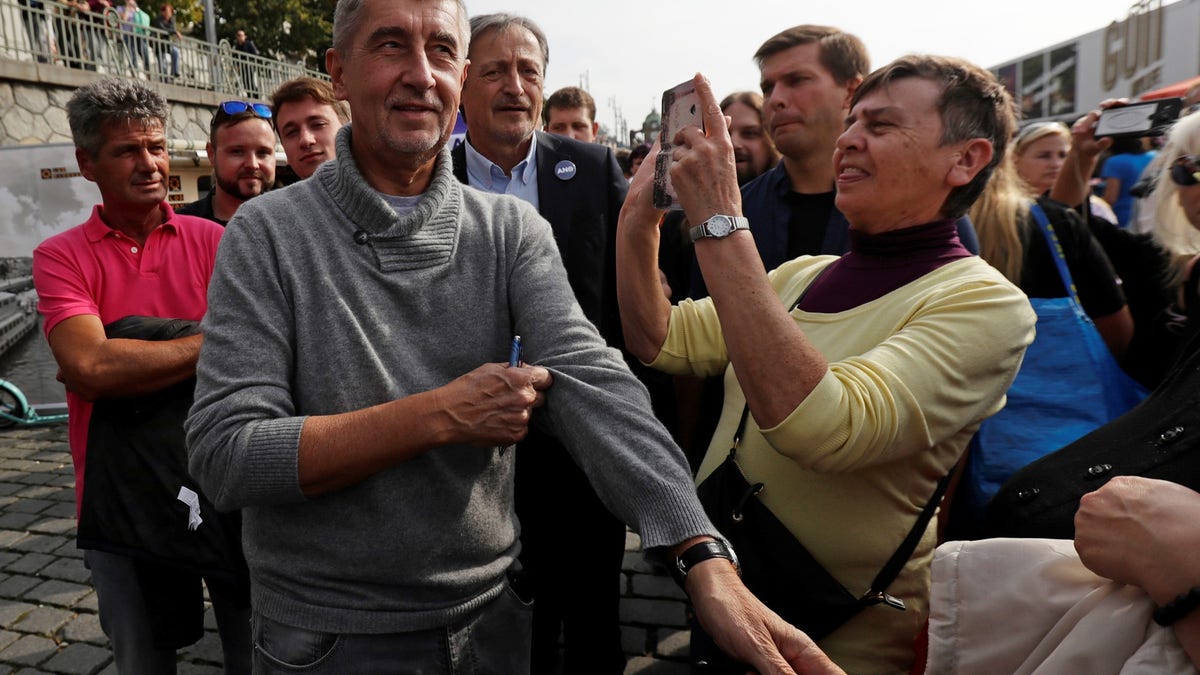
FILE -- The leader of ANO party Andrej Babis arrives at an election campaign rally in Prague, Czech Republic September 28, 2017. (REUTERS/David W Cerny)
He’s not your run of the mill politician. He promises to drain the political swamp, thinks government should be run like a business, is disdained by elitists and is suspected of shady deals. And, oh, yes, he’s a billionaire.
No, not Trump. His name is Andrej Babis and by this time next week, he will probably be the prime minister of the Czech Republic, which holds elections this weekend.
This is another chance for Europeans to tell the European Union to stop trying to run their lives. It happened earlier this month in Austria, where 31-year-old Sebastian Kurz led his right-of-center party to victory, and in Germany, where an anti-immigrant party posted a surprisingly strong second-place showing. If Czech voters do what the polls predict, they will join Poland and Hungary in electing a leader who opposes the E.U.’s encroachment on the rights of its member states.
There is no surer sign that Babis and his Ano party are gathering steam than a New York Times headline calling him “a new threat to European unity.”
As in those countries, increasing numbers of citizens are tired of being told what to do by Brussels. They don’t want to adopt the euro, preferring their currency, the koruna. They don’t want to take in more immigrants from the Middle East and Africa, as Germany’s iron-willed chancellor Angela Merkel has mandated for the past two years. Merkel got her comeuppance in her country’s national elections, where her Christian Democrats came in first but garnered far fewer votes than it did in 2013.
The Czech Republic, which spent decades decaying behind the Soviet-era Iron Curtain, flourished in its early years of political independence. But the worldwide economic meltdown in 2008 convinced Czechs that their traditional parties were corrupt and too willing to take orders from the E.U.
Like President Trump, Babis is a wealthy businessman, and he has earned his share of detractors. He has been indicted on criminal charges of misusing European Union funds during his time as finance minister. His tax returns are also under intense scrutiny. So far, those flaws have not cut into his popularity, according to recent opinion polls.
There is no surer sign that Babis and his Ano (it means ‘yes’ in Czech) party are gathering steam than a New York Times headline calling him “a new threat to European unity.” Memo to Times: Europe is a continent, not a country. It’s made up of nations representing very different cultures, traditions and histories. Babis thinks serving his own country is more important than building a united Europe. It’s a message that is moving across the continent with surprising speed.




















